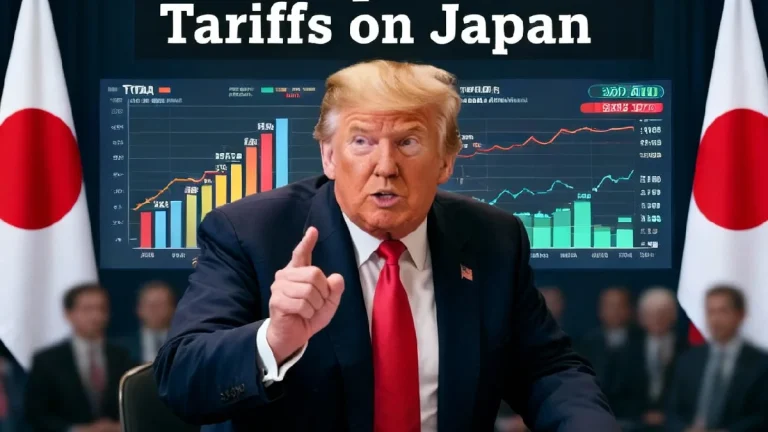President Donald Trump’s new 15% tariff on Japanese imports, finalized on September 4, has sparked retaliatory actions from Canada and raised concerns for U.S. companies like Coca-Cola and General Motors. The trade policy, part of a broader U.S.-Japan agreement, aims to balance trade but has disrupted global markets and eroded trust in American brands.
New Tariffs on Japan
The 15% tariff, reduced from an earlier 27.5% on Japanese automobiles, applies to a wide range of goods, including cars and electronics. Announced after months of negotiations, the deal includes Japan’s pledge of $550 billion in U.S. investments. “This agreement protects American workers while fostering fair trade,” Trump said on Truth Social. However, Japan’s government has expressed unease, with Prime Minister Shigeru Ishiba noting, “We must ensure these tariffs don’t harm our economy.”
Canada Strikes Back
Canada responded to U.S. tariffs, including a 35% duty tied to drug enforcement, with 25% retaliatory tariffs on $29.8 billion of U.S. exports like steel and citrus in March. Prime Minister Mark Carney, speaking in Ottawa, said, “Canada will defend its interests while seeking cooperation.” Although some tariffs were eased in August, ongoing duties on autos and metals continue to disrupt trade, pushing Canada to source more from Mexico.
Impact on U.S. Companies
The trade war is hitting U.S. firms hard. General Motors reported a profit decline in its second quarter, projecting a $4 billion to $5 billion loss in 2025 due to supply chain disruptions. “These tariffs raise costs and hurt our global edge,” a GM spokesperson said. Coca-Cola, facing higher aluminum prices, may increase consumer prices, with CEO James Quincey calling the impact “challenging but manageable.” Surveys show declining global confidence in U.S. brands, affecting sales in key markets.
Wider Economic Concerns
Economists warn of broader fallout, including potential job losses and inflation. “Tariffs could cost 309,000 U.S. jobs, especially in agriculture,” said trade analyst Priya Chacko. Social media reflects public frustration, with one X post stating, “Trump’s tariffs are raising prices for everyday Americans.” The White House insists the policy will boost domestic manufacturing, but critics compare it to the 1930 Smoot-Hawley Act, which deepened the Great Depression.
As trade tensions escalate, global brands and consumers brace for further economic ripples.
Sources: CNBC, Reuters, X posts







